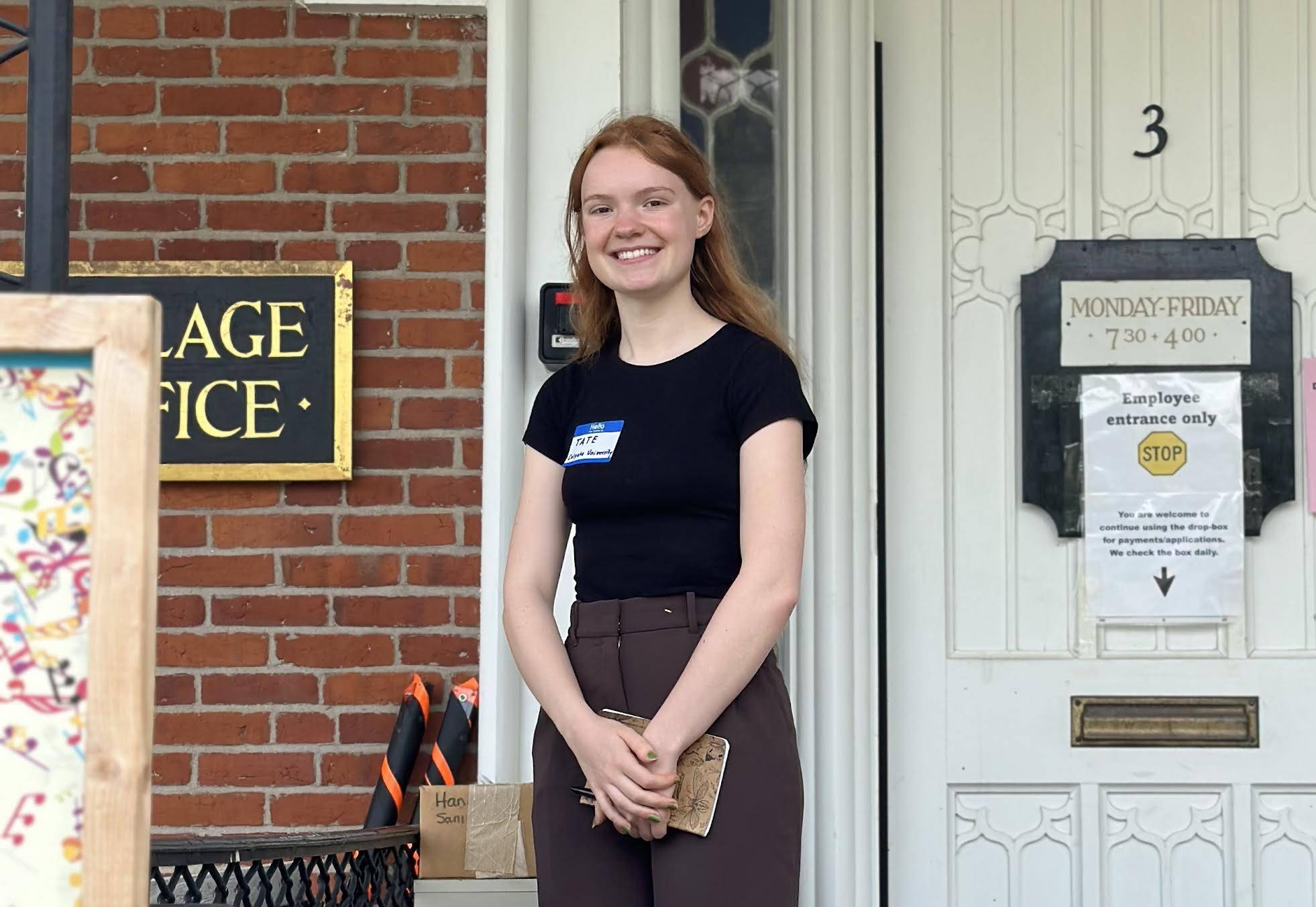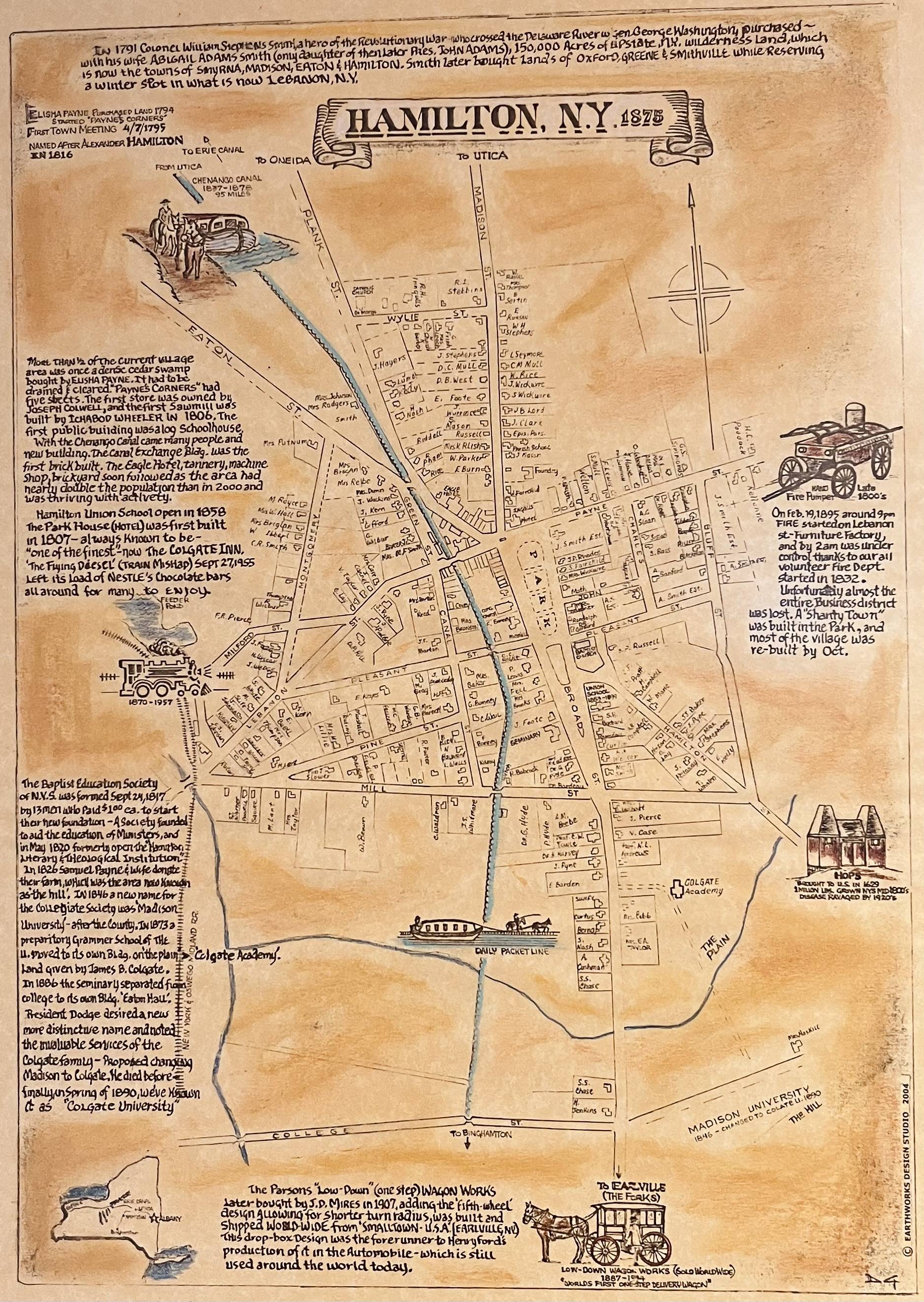Neuroscience and English major Tate Fonda ’25, from Batavia, N.Y., describes her Summer Field School Fellowship, working with the village of Hamilton.
This summer, I have had the opportunity to join the village of Hamilton’s local government offices as a Summer Field School Fellow with Colgate University’s Upstate Institute. Under the direction of Julie Dudrick, who acts as both a trustee to the village and the associate director of the Upstate Institute, I’ve learned how to write contracts, interpret local laws, and illuminate Hamilton’s archives.
This fellowship has provided me — as a student of English and neuroscience, entering my third year at Colgate — with the experience I’ve been seeking in my pre-law education. The opportunity to familiarize myself with the people behind Hamilton, a historic center of both education and community, has made all the difference in my understanding of what it means to operate a scenic university in a well-kept village.
The strong Colgate-to-Hamilton connection is led by Mayor RuthAnn Loveless, who retired from her work in Colgate’s alumni office in 2011 after a 19-year career. Loveless’s leadership is infused with both direct communication and charm. She leads a weekly mayor’s meeting, values personability, and bakes a delicious blueberry muffin.
Meanwhile, Village Municipal Lawyer Jim Stokes and Village Code Enforcement Officer Gerard Snow interpret the nuances of local laws. In my work with Stokes, I’ve created a fact sheet that translates a local renters’ law into a one-page summary of regulations and requirements. My objective was to provide an accessible first look at the law to ensure homeowners can understand how often they can rent their property.
The law was put into effect in May of 2023 and allows village residents to use their primary property as a short-term rental for 30 days each year while concentrating short-term rentals in commercial districts of the village — expanding housing is one of the village’s leading priorities and will be a focus of grant funding received by the village through the New York Forward program.
One of the perks of working at the village office is that the Hamilton Public Library — a haven of books and local history — is located next door. During afternoons, I’ve often wandered through both the library’s shelves and its museum to uncover nuggets of Hamilton’s history.
Did you know, for instance, that, in 1955, a boxcar brimful of Nestle chocolate bars spilled onto Hamilton’s streets? The sweet mistake was termed the “Great Chocolate Train Wreck,” and the sweets were the only casualties.
The library preserves these and other moments in village history in pictures. A collection of historic postcards depicting Hamilton’s architectural past are but one source I’ve preserved and publicized on the village website.
On paper, I’ve had the opportunity to revise, update, and consolidate applications for local building permits submitted by residents applying for building projects, such as a new sign, a fence, or a parking lot. Where possible, I’ve considered gender equity in my revisions by changing fields to universalized pronouns (they/he/she instead of he/she).
At its core, my work with the village this summer has been all about accessibility. I wish to structure the nuance of contracts and the interpretation of local law in a fashion that bridges the gap between those who are represented on the larger political stage and those who are not. These considerations are central to my moral responsibility as a student pursuing a civil service profession, and I look forward to continuing to work toward greater accessibility in Hamilton for the remainder of my time here at the village government offices and beyond.

